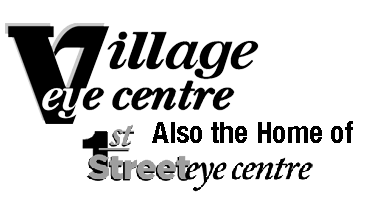
Vision Therapy for Visual Processing Difficulties
Without good visual processing skills, the brain isn’t able to make sense of the world we see with our eyes. A child may have 20/20 vision but still struggle with understanding or remembering pictures, distances, or symbols.
A child’s ability to learn properly in the classroom, play sports and socialize with peers can be affected by visual processing deficits.
A child who has not developed good eye teaming, eye focusing and eye movement skills will often have more difficulty with visual processing skills. Fortunately, vision therapy can strengthen these skills..
What is Visual Processing Disorder?
Visual processing disorder impairs the brain’s ability to process the information sent to it by the eyes. This doesn’t mean your child’s eyesight isn’t clear. The problem is the brain’s inability to make perfect sense of the visual information sent to it via the visual system.
Signs and Symptoms of Visual Processing Disorder
There are certain signs or symptoms that indicate a child may have trouble with visual processing. These may include:
- Difficulty distinguishing between similar shapes, letters or objects
- Difficulty identifying an object when only parts of it are visible
- Difficulty determining how close objects are to one another
- Difficulty distinguishing a figure from its background
- Frequent reversal of letters, numbers or words
- Illegible handwriting
- Trouble remembering what they’ve read or seen
- Tendency to read the same line over and over or skip lines when reading
- Trouble writing within the lines or copying from a book
- Bumps into things when walking
- Problems with organization
- Poor retention of visual classroom material
Common Areas of Difficulty
Visual Memory
Visual memory allows for the immediate recollection of how letters, numbers, shapes or objects look. If a child can’t recall a sight word from one page to the next or has difficulty copying information from the board to their notebook, it’s often a sign that visual memory is impaired.
A child who struggles with comprehension often has issues related to visual memory.
Visual Sequential Memory
Visual sequential memory is the ability to remember listed items in the correct sequence. This is essential for both spelling and reading. A child who struggles to remember the order of letters, numbers or shapes in a series has visual sequential memory difficulties.
Visual Closure
Visual closure refers to the ability to [visualize] the complete whole when given incomplete information. For a child, this skill is important for reading fluency. This skill prevents a child from having to process every letter in every word. Instead, they are able to recognize a word by sight.
Visual Discrimination
Visual discrimination is an important skill for reading, writing, math and social interactions. It is the ability to detect differences in visual images. If a child has trouble recognizing slight differences, it can lead to confusion between two people, or words and letters, such as ‘saw’ and ‘was.’
Visual Form Constancy
Visual form constancy refers to the ability to mentally rotate or turn objects or [resize] a form in the mind in order to match a picture. This allows the child to recognize the shapes of letters and words, no matter their orientation.
Visual Figure-Ground
If a child struggles in this area, they will likely get overwhelmed by a page with a lot of words. This ability to distinguish an object from its background helps with reading skills.
How Does Vision Therapy Help?
A vision therapy treatment program can enhance visual-motor integration, visual memory, processing speed and more in order to improve a child’s visual processing skills and, in turn, help them to progress in the classroom and beyond.
If you suspect your child has a visual processing disorder, it may be time to have your child’s vision evaluated. Call Village Eye Centre in North Edmonton to schedule an appointment today.
Village Eye Centre serves patients in Edmonton, Sherwood Park, St. Albert, Fort Saskatchewan and throughout Alberta.
